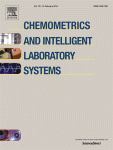 Chemometrics and Intelligent Laboratory Systems, an Elsevier publication, has retracted a 2014 paper by researchers in China and the United Kingdom for data misuse and authorship issues.
Chemometrics and Intelligent Laboratory Systems, an Elsevier publication, has retracted a 2014 paper by researchers in China and the United Kingdom for data misuse and authorship issues.
The article, “Optimization of fluidized bed spray granulation process based on a multiphase hybrid model,” was purportedly written by Dapeng Niu, of the College of Information Science and Engineering at Northeastern University, in Shenyang, China, Ming Li, of De Montfort University, in Leicester, England, and Fuli Wang, a vice-president at Northeastern.
But Niu apparently didn’t perform any experiments, lifted the data from other sources, and published the paper without his co-authors’ okay.
Here’s more from the retraction notice:
This article has been retracted at the request of the Corresponding Author, Dapeng Niu, and the Editor-in-Chief, because the co-Authors did not give their consent to publication and repudiate any co-authorship in the article. This is acknowledged by the corresponding author, who further confirms that he did not perform the experiments, but took the data from elsewhere, and that the paper contains serious errors – the experimental data are neither adequate to build an accurate hybrid model nor to obtain a feasible optimization result. Dapeng Niu apologizes to his co-workers, the Editors, the Journal and its readers for his serious error of judgment.
One of the conditions of submission of a paper for publication is that authors declare explicitly that the paper is their own work and not published, or under consideration for publication, elsewhere. Re-use of any data should be appropriately cited. As such this article represents a severe abuse of the scientific publishing system. The scientific community takes a very strong view on this matter and apologies are offered to readers of the journal that this was not detected during the submission process.
We’ve emailed Niu and Li, and will update if they respond.
Like Retraction Watch? Consider supporting our growth. You can also follow us on Twitter, like us on Facebook, add us to your RSS reader, and sign up on our homepage for an email every time there’s a new post.
“the experimental data are neither adequate to build an accurate hybrid model nor to obtain a feasible optimization result”
Despite this, the paper passed “peer review”, was apparently approved by an editor, and was published. Niu was clearly at fault, but so was the so-called peer review in place at this Elsevier journal.
Do you review for journals? I do, a lot, and have never run programs or other tools in the process. Peer review is fast-paced. For most journals, you have max 2 weeks, and I can barely carve out the 3-4 hours to do a basic review. Reviewers have time for some things, but not extensive reworkings of the analysis.
Should not the journal and Elsevier also apologise?